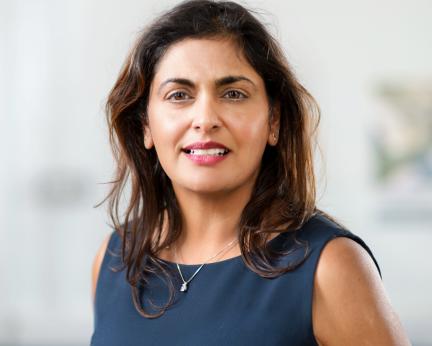From qualifying as a nurse and midwife, I have travelled overseas and was fortunate in improving or strengthening global midwifery in developing countries. My first experience was working with the Royal College of Midwives on a twinning project in Nepal for three weeks. We provided training to nurses and midwives in Kathmandu at a new birthing centre.
I got the travelling bug and was recruited by Rotary International Projects to work on a sponsored project called ‘Train the Trainer’ to benefit the rural community of a tribal village in the north of Mumbai, India. I was there for three years where I taught classes on reducing maternal mortality by enhancing emergency skills for staff.
In my current role, every day is different – from attending the trust’s board meeting, making the most of our capacity, space and room for our growing population in the community and antenatal clinics, to seeing mothers and babies on the ward about their maternity experience.
Clinical visibility is very important for our staff. I regularly meet staff to touch base and ensure that they are fully supported and have the right tools and equipment to carry out their roles. I strongly believe that keeping my staff happy equates to a great experience for our patients and their families.





